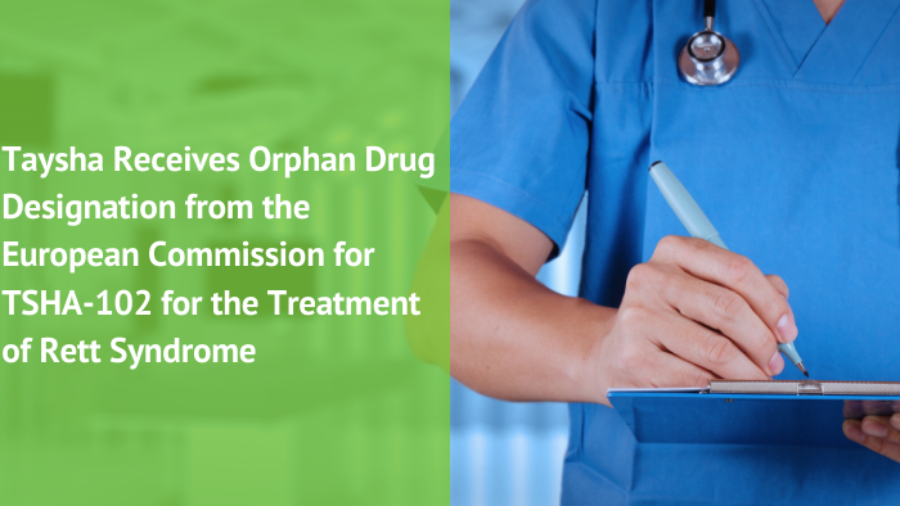Taysha Gene Therapies, Inc. (Nasdaq: TSHA), a patient-centric, pivotal-stage gene therapy company focused on developing and commercializing AAV-based gene therapies for the treatment of monogenic diseases of the central nervous system (CNS) in both rare and large patient populations, today announced that it has been granted orphan drug designation from the European Commission for TSHA-102, an AAV9-based gene replacement therapy in development for Rett syndrome.
“The receipt of orphan drug designation from the European Commission represents an important regulatory milestone that has the potential to expedite the global clinical development of TSHA-102, a one-time gene therapy with disease modifying potential,” said RA Session II, President, Founder and Chief Executive Officer of Taysha. “Promising preclinical data demonstrate that TSHA-102’s novel self-regulatory feedback mechanism, miRARE, has the ability to regulate MECP2 expression in a genotype-dependent manner on a cell-by-cell basis. We are highly encouraged that this novel treatment approach can help effectively address a disease that has historically been difficult to treat, and we look forward to submitting an IND/CTA in the second half of this year and initiating a Phase 1/2 clinical trial by year-end.”
Rett syndrome is a severe genetic neurodevelopmental disorder caused by a mutation in the X-linked MECP2 gene essential for neuronal and synaptic function in the brain. Primarily occurring in females, Rett syndrome is one of the most common genetic causes of severe intellectual disability worldwide, with a prevalence of over 25,000 in the United States and European Union. Patients have normal early development, with symptom onset typically beginning between six to 18 months of age. Rett syndrome is characterized by rapid developmental regression that leads to intellectual disabilities, loss of speech, loss of purposeful use of hands, loss of mobility, seizures, cardiac impairments and breathing issues. Currently, there are no approved therapies.
To Read the Complete Article at BioSpace Click Here
Disclaimer: BioPharma Global is not responsible for, and expressly disclaims all liability for, damages of any kind arising out of use, reference to, or reliance on any information contained within the article. Content available through the site may contain links and information to other websites. Links from BioPharma Global to third-party sites do not constitute an endorsement by BioPharma Global of the mentioned parties.
BioPharma Global is a mission-driven corporation, operating like a not-for-profit, dedicated to using our FDA and EMA regulatory expertise and knowledge of various therapeutic areas to help drug developers advance treatments for the disease communities with a high unmet medical need. If you are a drug developer seeking regulatory support for Orphan Drug designation, Fast Track designation, Breakthrough Therapy designation, other FDA/EMA expedited programs, type A, B (pre-IND, EOPs), or C meeting assistance, or IND filings, the BioPharma Global team can help. Contact us today to arrange a 30-minute introductory call.
Stock image by @everythingposs from Depositphotos

